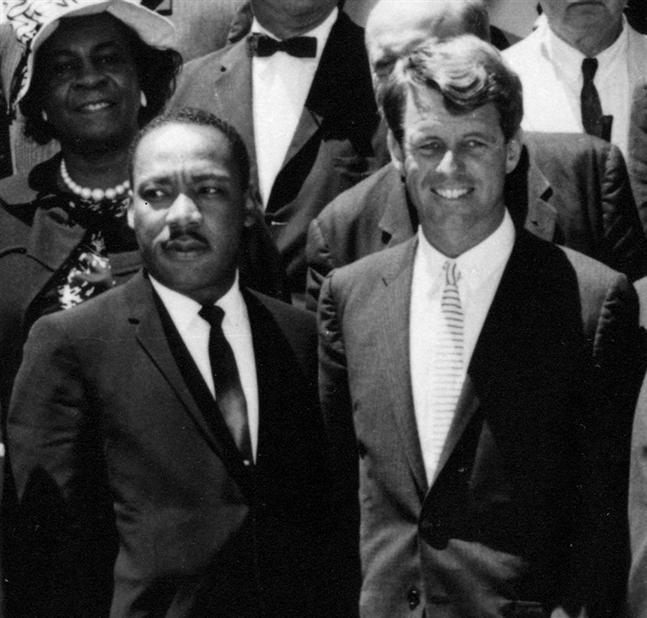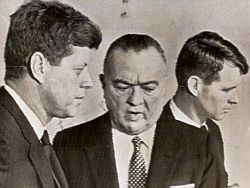“The war between J. Edgar Hoover and Attorney General Robert F. Kennedy was a scorched-earth campaign that burned throughout the 1960s.”– Tim Weiner, Enemies, 223.
Just as J. Edgar Hoover had not liked or trusted John F. Kennedy, so too did he dislike Attorney General Robert Kennedy. They fought on a number issues ranging from JFK’s romantic indiscretions to the Civil Rights movement. Robert was an outspoken advocate of the civil rights movement and yet, there were two issues that time and time again dominated the attention of the young attorney general as evident by his orders to the FBI. The first issue was organized crime and the second was communism in the United States. J. Edgar Hoover, like he had with so many other titans of American politics, was whispering threats of communism in the ear of Robert Kennedy. This allowed Hoover and the FBI use their own social biases to survey and harass whoever they wanted under the guise of suspected communism.
I have already written about the relationship between the FBI and race and you can read that here. For years Hoover was a silent antagonist to the civil rights movement and now he used his suspicions of a link between civil rights and communism to get permission to survey black activists in the US. David Garrow writes in his book, The FBI and Martin Luther King, Jr. that despite his dislike of Hoover, often times Robert Kennedy unconditionally accepted FBI allegations of links between communism and specific civil rights leaders.[1]

Although an outspoken advocate for Civil Rights, Robert Kennedy was worried how an alleged connection between Martin Luther King, Jr. and Communism would effect the movement.
As mentioned before RFK was an outspoken advocate of civil rights and as such was worried how communism and communist affiliations would effect the movement. Both he and the President personally warned King against associating with communists and yet, memoranda from the FBI kept rolling in about his leftist affiliations. Begrudgingly, on October 10, 1963, RFK consented to give unlimited power of wiretapping to the FBI in order to bug King’s headquarters in Atlanta.[2] Hoover’s relationship with Robert Kennedy represents the mastery of his craft as a manipulator. Despite the Kennedy’s distrust and even at points, open hatred of Hoover, he was still able to get what he wanted.
Here is a video of J. Edgar Hoover presenting the FBI to the Kennedy brothers in October of 1961. http://www.youtube.com/watch?v=fFDTBhwCiTM
[1] David Garrow, The FBI and Martin Luther King, Jr. New York: Penguin Books, 1981. Pp. 95.
[2] Time Weiner, Enemies, New York: Random House, 2012. Pp. 235.


